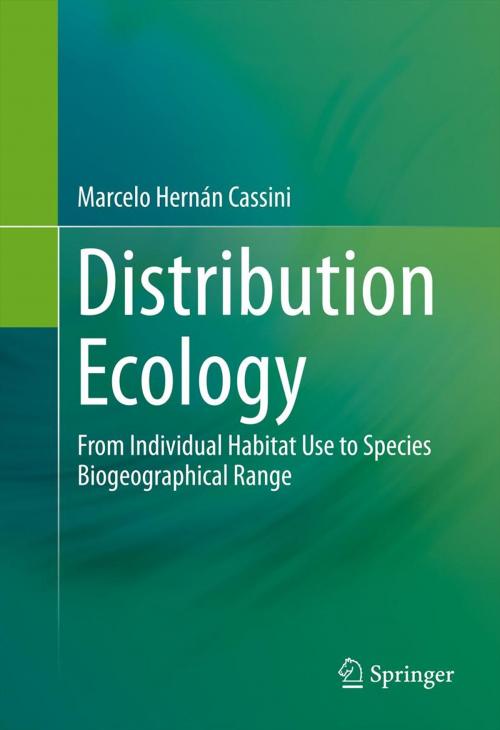Distribution Ecology
From Individual Habitat Use to Species Biogeographical Range
Nonfiction, Science & Nature, Science, Biological Sciences, Ecology, Nature| Author: | Marcelo Hernán Cassini | ISBN: | 9781461464150 |
| Publisher: | Springer New York | Publication: | March 2, 2013 |
| Imprint: | Springer | Language: | English |
| Author: | Marcelo Hernán Cassini |
| ISBN: | 9781461464150 |
| Publisher: | Springer New York |
| Publication: | March 2, 2013 |
| Imprint: | Springer |
| Language: | English |
This book brings together a set of approaches to the study of individual-species ecology based on the analysis of spatial variations of abundance. Distribution ecology assumes that ecological phenomena can be understood when analyzing the extrinsic (environmental) or intrinsic (physiological constraints, population mechanisms) that correlate with this spatial variation. Ecological processes depend on geographical scales, so their analysis requires following environmental heterogeneity. At small scales, the effects of biotic factors of ecosystems are strong, while at large scales, abiotic factors such as climate, govern ecological functioning. Responses of organisms also depend on scales: at small scales, adaptations dominate, i.e. the ability of organisms to respond adaptively using habitat decision rules that maximize their fitness; at large scales, limiting traits dominate, i.e., tolerance ranges to environmental conditions.
This book brings together a set of approaches to the study of individual-species ecology based on the analysis of spatial variations of abundance. Distribution ecology assumes that ecological phenomena can be understood when analyzing the extrinsic (environmental) or intrinsic (physiological constraints, population mechanisms) that correlate with this spatial variation. Ecological processes depend on geographical scales, so their analysis requires following environmental heterogeneity. At small scales, the effects of biotic factors of ecosystems are strong, while at large scales, abiotic factors such as climate, govern ecological functioning. Responses of organisms also depend on scales: at small scales, adaptations dominate, i.e. the ability of organisms to respond adaptively using habitat decision rules that maximize their fitness; at large scales, limiting traits dominate, i.e., tolerance ranges to environmental conditions.















